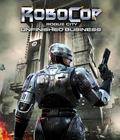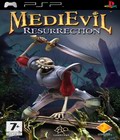Many PSP users are currently much more interested in the work of the homebrew community than that of Sony and its licensed third-party publishers and developers. The hard work put into the useful and sometimes artistic home-cooked releases is not on the level of the retail releases, but it does have a specific charm that seems to work when applied to the handheld format. Sony, however, sees little need for such a community on their platform, as the PSP business model is reliant on software sales – movies and video games – not free content provided by fans of the console.
Rightly so, the general opinion of Sony as a hardware maker as opposed to, say, the makers of the GP32 (a console that is regarded by all parties, including its manufacturer, as a homebrew-driven device), is that of an "official content only" stance. Historically, this is not completely true, as Sony has traditionally come up with a cheap method of allowing smaller developers, including single-man "teams," the opportunity to work on games for their PlayStation-branded platforms, albeit under the close watch of Sony themselves.
The original MediEvil was born under these circumstances, developed by a small, rogue team that found a publisher who gave them the money to brush up their creation and use an official publisher development kit to authenticate their creation as a program playable on retail PlayStation consoles. (Another similar story is that of the fantastic Devil Dice.). A sequel released soon thereafter, and a full-blown franchise grew from a very grassroots situation. Though MediEvil was left to sit with the 32-bit generation, it has been regarded as somewhat of a neo-classic, a stair-step on the way up to more recent releases like Maximo: Ghosts to Glory. Sony continued giving a leg-up to the little guys with its PlayStation 2 Linux-based development kits, and has similar plans for the PlayStation 3, and the rest of the world has left MediEvil to rot in the wake of more modernized releases.
Looking at the revival of the series that we have here in MediEvil Resurrection, perhaps that was the best way to go about things. Had MediEvil 3 released for PlayStation 2 and been anything like Resurrection, it would have played out something like the last Syphon Filter release – an early grave for a series that could have been something nostalgic. Resurrection controls loosely, and despite its pretty looks, feels more like a PSOne release than any PSP title this side of Twisted Metal Head-On. As endearing as the Tim Burton-esque Sir Dan and company were in 1998, here in 2005, the characters seem trite – almost plagiaristic – now that Burton's style has been replicated in so many media already.
Players guide undead anti-hero Sir Dan through the strange, Burton-esque world of Gallowmere, where legend has it that Dan killed the evil sorcerer Zarok. However, legend and truth are often two very different things, and the unsuspecting Dan was actually killed within the first few minutes of the battle. Somehow, Zarok has figured out how to rise from the dead, and he's brought an army of undead soldiers along with him, including poor Dan, who must now fulfill the directive of a legend he had nothing to do with in the first place.
This information is told through a wealth of long CG and in-game dialogue sequences which serve mostly, at first, to get in the way of the player and the game. The cinematic nature of MediEvil was welcomed in 1998 as we sat in front of our televisions with a PSOne controller in hand, but now, with a PSP waiting to be ripped from our hands by a delinquent on the subway, this approach to storytelling is wholly inappropriate, although well-executed for what it is. Again, the level of material taken straight from Burton is indescribably intense, so for those tired of seeing avid Hot Topic shoppers quoting his films religiously, this game might not be for you. Resurrection is unabashedly one-third film, two-thirds video game.
As for the gameplay itself, it is mostly the same as what we experienced in the first MediEvil – meaning that it's extremely dated at this point – but with the slight tweak of a lock-on system added in to bring the game at least somewhat up with the times. The new system is handled by having a green dot float a tangible distance in front of Sir Dan, which can lock on to any objects that can be damaged by long- or short-range weapons. This system is wholly unreliable, mostly because the green dot can actually clip into the environment, making it somewhat difficult to deal with locking onto specific enemies when too many objects or foes are present, causing the dot to be MIA more often than not. This is especially difficult during boss fights and when taking on quick enemies.
The melee combat is a simple light slash/heavy slash interplay, mapped to the X and square buttons, respectively. There are no fluid combo rhythms to discover, just the interplay between enemies and the character as a decisive factor. (If he is slow-moving, bop him from behind with a heavy hit; if he is quick, poke fast and run.) Projectile weapons rely on the soft hits alone.
There is some platforming to be had, but melee combat is definitely the focus of the game. This is where the connection with Maximo becomes clearer; while the setting has all the makings of a Zelda-style adventure, it is a more focused, action-packed experience. Unlike Maximo, the combat engine is not tight enough to carry an entire game – especially one as long as Resurrection is – on its own. The movement engine is too stiff to truly handle the task of minute motions, and the design of the game world is aptly organized with many flat, basic surfaces to accommodate the control.
It is not the shady control that ends up being problematic in MediEvil, however. It is more so the troublesome camera that, in certain tight environments, can lead to death. Of course, every 3D game has camera troubles, including the action game that I consider to be the pedigree of the entire genre, Ninja Gaiden, but Resurrection seems, once again, to be stuck in the late days of the PSOne era. Too often, the camera slips directly into a wall, leaving Sir Dan to an untimely death. The difference between this and Ninja Gaiden is that camera-caused deaths are scares in that game, but in MediEvil the cause for most of the deaths the player will encounter.
There is a selection of unlockable mini-games that do extend the replay value slightly, although not enough for those who already own the previous MediEvil games to pick up this repackaging. All take place within the normal engine of the game, but add strange objectives to the mix which are sometimes fun, but usually do little more than highlight the flaws in Resurrection's control scheme. The wi-fi multiplayer mode fares even worse; it is simply a race through stages ripped straight from the single-player mode. As ridiculous as that is, it is almost laughable once one realizes just how many alternatives there are on the PSP for a fun racing experience.
Graphically, despite some tearing and minimal pop-up, Resurrection fares extremely well. The textures have been cleaned up dramatically (no little thanks to the anti-aliasing capabilities of the PSP hardware over the original PlayStation!) from the originals, and the polygon counts have been shot through the roof for the most part. A fair amount of blockiness is present, but most of the geometry has the strange, swooping, smooth look that a proper Burton-esque work is required to have. The striking similarities to almost any of Burton's stop-motion films aside, Resurrection is one of the best-looking PSP releases yet.
Another fantastic production feature is the voice acting, which still surprises me thinking about it even now. (I guess we're not that far away from "you were almost a Jill sandwich," are we?) The quality is perfect, equal with Hollywood production values. The acting is creative, wacky, and powerful all at once, easily overtaking the work done in games with much more money behind them. Whoever directed the actors for this game needs some serious kudos; he or she has done fantastic work with a very small amount of money considering.
MediEvil Resurrection is a proper release to fill what has become a massive gap between MediEvil games; but without a proper sequel on the horizon, this remake/repackaging seems a bit aimless, and somewhat disappointing for fans looking for something fresh and new outsides of cleaned up graphics and the portability factor. Despite its look, Resurrection is so clearly a PSOne game at heart that it is difficult to stomach as a modern release, and despite the extremely slick production values, it is not the sequel fans were hoping for, nor the proper modernization that the series deserves.
Score: 6.5/10
More articles about MediEvil Resurrection











 In MediEvil Resurrection, players follow the role of Sir Daniel Fortesque and embark on a journey to defeat the evil Sorcerer Zarok, while interacting with various characters, enemies, weapons, and mini-games that take place in the realm of Gallowmere. In addition, MediEvil Resurrection features wireless multi-player connectivity via ad-hoc mode and the first game to offer "game-sharing.
In MediEvil Resurrection, players follow the role of Sir Daniel Fortesque and embark on a journey to defeat the evil Sorcerer Zarok, while interacting with various characters, enemies, weapons, and mini-games that take place in the realm of Gallowmere. In addition, MediEvil Resurrection features wireless multi-player connectivity via ad-hoc mode and the first game to offer "game-sharing.




























